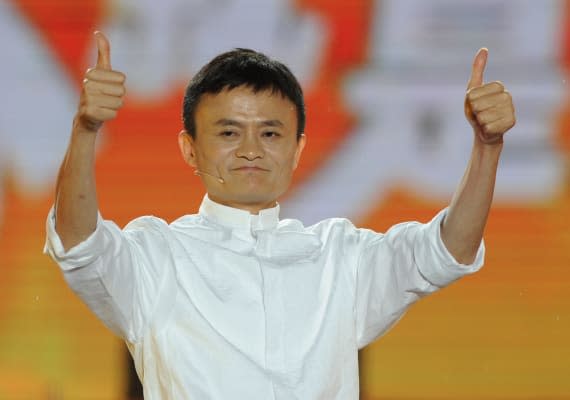Alibaba's massive IPO plans shift the focus from Silicon Valley to China

The recent big tech IPOs of companies like Facebook, Twitter and Tesla could all soon be dwarfed by a company with roots far outside Silicon Valley. Chinese e-commerce giant Alibaba Group just filed documents for its own offering (choosing to trade its stock in the US over Hong Kong) and while its value has not been determined, it could result in the biggest IPO ever when it's all said and done. Alibaba built its empire on a number of online sales platforms described as a blend of Amazon, eBay and Paypal, and its reach is starting to include the US, thanks to investments in companies like Lyft.

Alibaba's other well-known US links are from investment stakes held by Yahoo and Sprint's owner Softbank, but once it offers shares on an exchange stateside -- it hasn't specified whether that's NYSE or NASDAQ -- that could change. So before its founder Jack Ma (who has retired as CEO last May but remains its executive chairman) snaps up the next Oculus VR out from under Mark Zuckerberg's nose or we're all shopping Tmall and Taobao for our same day-deliveries by drone, let's get to know Alibaba.
While the internet has connected the world in ways never seen before, many of the companies we're familiar with have little direct contact with the 600 million+ people logged on in China. That extends not just to Alibaba, but also search engine Baidu ("China's Google"), fellow online store JD.com (which has already filed for an IPO in the US) and any number of others. Dr. Yan Anthea Zhang tells the New York Times we should expect to see competition between the sides heat up in the future, which in China has predictably gone the local's way. Differences in the Chinese market and familiarity in dealing with government issues put your Silicon Valley standard bearers on awkward footing, and it will be interesting to see if the situation follows that pattern here.
In China, other than providing online shopping tools for other companies to build stores on and a PayPal-like electronics payment service called Alipay, Alibaba's main consumer-facing offerings are Taobao and TaoBao Mall, or Tmall. The difference between Alibaba and Amazon is that even there, it doesn't actually handle or ship the goods itself, it just provides the platform for a shop and customers deal with the brands directly. As analyst Kelland Willis describes to Mashable, it enables policies like paying cash on delivery, after the customer has a chance to inspect the item.

Alibaba's initial SEC filing leaves a lot of questions left to be answered before its IPO actually commences later this year, like what exchange it will be listed on or exactly how its shares will be priced. As a result, its true value is still unknown, but a couple of figures explain why the potential is so high. In the document, Alibaba reveals its partners shipped over 5 billion packages in 2013, more than UPS' 4.3 billion global total last year. It claims more than 231 million active users in China, which Reuters points out is more than Amazon and eBay combined. As a shop that modestly calls itself "The largest online and mobile commerce company in the world," expect its debut on the trading exchanges to have shockwaves that may impact Yahoo and Sprint first, but the rest of the internet won't be far behind.
[Images: Hong Wu/Getty Images; PETER PARKS/AFP/Getty Images]

